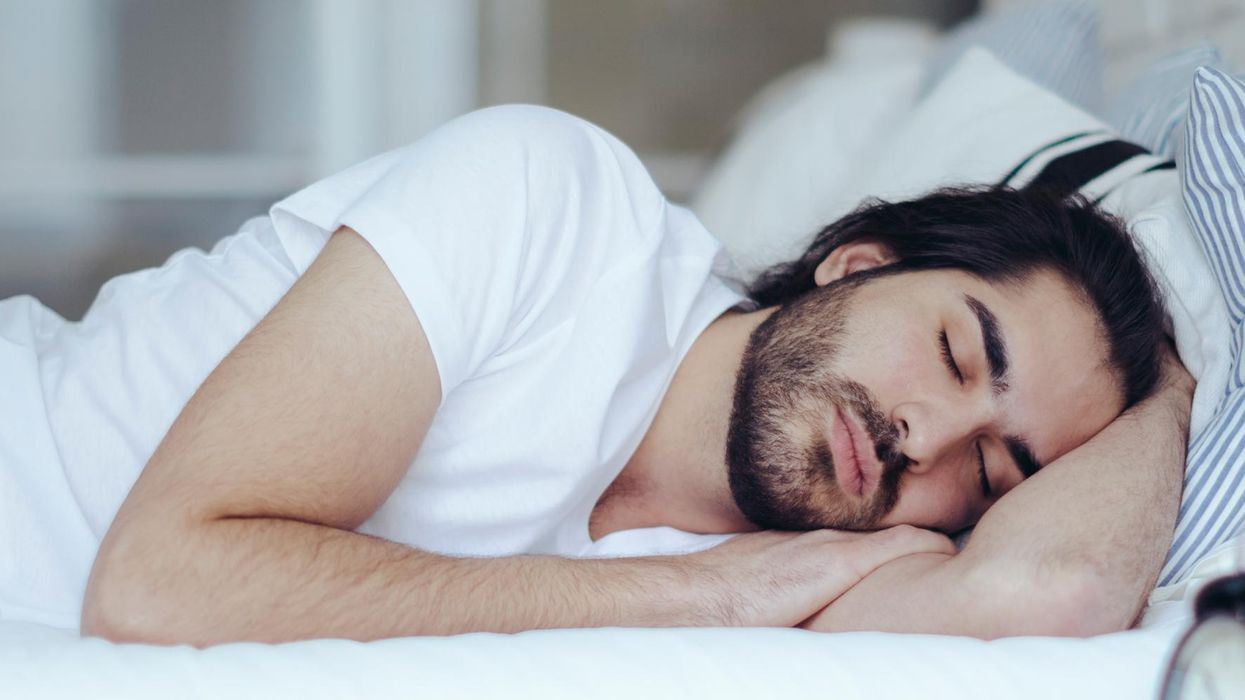
Persistently failing to get enough sleep 'is like a sustained attack on your brain’s ability to function', according to a clinical psychiatrist and sleep specialist.
Britain is consumed by an anti-sleep culture, or more accurately, one that glorifies tiredness and surviving on as few hours' sleep as possible.
To find out more about the effects of not getting enough sleep indy100 spoke to Professor Colin A. Espie.
Espie is Professor of Sleep Medicine at the University of Oxford and the co-founder of Co-Founder of sleepio.com.
He and the institute study the effects of interrupted sleep, and try to help people to sleep more - whether those disruptions are caused by insomnia, or simply because people deliberately choose to have less sleep.
There’s pretty much no part of your life that is untouched by the importance of sleep.
Espie explained that the effects on the body of not getting enough sleep are behavioural, physiological, and cognitive.
Behavioural changes include the usual things one associates with feeling overtired: Sluggishness, a lack of motivation, feeling disinterest, and a greater tendency to impulsivity.
The physiological effects are serious, and can happen almost immediately.
Espie said that even after just a few nights without proper sleep, people can suffer from pre-diabetic symptoms.
If you think about the functions of sleep, it’s pretty much akin to needing oxygen, needing food, needing water, so you get systemic failures if you don’t actually have enough sleep.
The negative effects are to the whole of the body's functioning, not just to specific parts.
[Lack of sleep] is not particularly specific to certain problems in the body it’s just one of those four essentials, and so therefore you begin to experience systemic failures which in the short term one can recover from, in the same way if you’re dehydrated it will cause you kidney problems but if you take some water you can recover. But if you have a prolonged lack of it you can cause real damage.
There needs to be a cultural shift in our attitudes to sleep, and he argues that the public need to stop thinking of sleep as 'an optional extra', just as they would never think of food or oxygen as optional.
Mental health
There is a very clear relationship between sleep problems and risk for depressive illness. People who have got insomnia that’s become persistent are twice as likely to develop depressive illness as people who do sleep well.
Espie explained that traditionally it was thought that insomnia was collateral damage that occurs when you get depressed, but in fact insomnia is a risk factor for developing depression.
Other problems include mental functioning, your ability to concentrate, to be vigilant, to take in information, and make sound judgements.
According to Espie, persistently failing to get enough sleep has been shown in some circumstances to be a risk associated with cognitive functioning at the acute level.
This is like a sustained attack on your brain’s ability to function if you persistently fail to get sufficient sleep.
Can sleeping less shorten your life?
In cases where a person is getting persistently insufficient sleep, there is an association with earlier mortality.
There is some evidence that there is an association with an earlier mortality, but that is more specifically associated with persistently getting insufficient sleep, people who are habitually tuning themselves to be short sleepers. If people do that for long enough there’s evidence that your life expectancy will be significantly shorter.
However, he added:
There is a lot of evidence of increased morbidity, meaning increased susceptibility to mental and physical and health problems with sleep deprivation and sleep disorders.
The stronger evidence is around disease risk. The association with mortality is more to do with insufficient sleep over a longer period.
Fitter, happier, more productive
Beyond personal health and mental health, Espie argues there is an economic and productivity case for making sure workers get enough sleep.
A condition he calls 'presenteeism' is common to sufferers of insomnia, and can be more detrimental than an absence from work in order to get more sleep.
In our research, we see what’s called ‘presenteeism’, being at work but not being productively engaged. It is something that is associated with insomnia, not necessarily absenteeism but presenteeism but if you treat insomnia effectively, and the best way is cognitive behavioural therapy (CBT), you can increase their productivity at work and you can reduce this presenteeism.
Espie thinks the obsession with getting into work early and staying late, sacrificing sleep is harming the workforce.
At the moment we kind of reinforce sleepiness and sleeplessness in our working environment, and in that situation you could expect to see some economic benefits from increased productivity because if people work less, but better having slept well this would benefit society, benefit the individual and I think it would also benefit the economy.
How to fix this sleep problem
In addition to fixing sleep on an individual level, Espie believes a public health approach is needed, an intervention from the NHS and a societal level change.
Just as adding fluoride to the water reduces dental decay, there can be a national response to sleep deprivation.
My concern about all of this, as a society and as a health service, we don’t take sleep seriously enough to devote resources to it and the effects on this in terms of incident illness and productivity is disregarded.
There needs to be a public health focus on the importance of sleep, and to support them in every aspect of life to ensure they got sufficient sleep.
The change required would also be about our attitudes; it ought to become improper for a person to brag about how little sleep they had.
On the individual level, he recommends cognitive behaviour therapies rather than sleeping tablets.
CBT directly address the things that underpin insomnia, things such as the racing mind, helping people combat that, and the cognitive repairs to help you get the right pattern of sleep and to ensure you’re sleeping properly at the right time.
If you try to treat problems with sleeping pills they may only help you to sleep a little bit better, but they can also degrade your day time performance because you remain sleepy.
While CBT often requires face to face interactions, digital technology makes it accessible to people on the same scale that a national programme of sleeping pills might.
This is fixable, this is a treatable situation…There are people who really need help, they have difficulties with their sleep, insomnia is treatable, and these are scalable [thanks to digital technology]
Espie is a co-founder of Sleepio, which was recently the subject of a clinical trial (its seventh) published in The Lancet - Psychiatry.
It was the largest randomised control trial of a CBT intervention ever published.
The study showed that by improving sleep you can also improve people’s mood and reduce symptoms of anxiety and depression, and CBT delivered remotely through Sleepio was an effective treatment.













